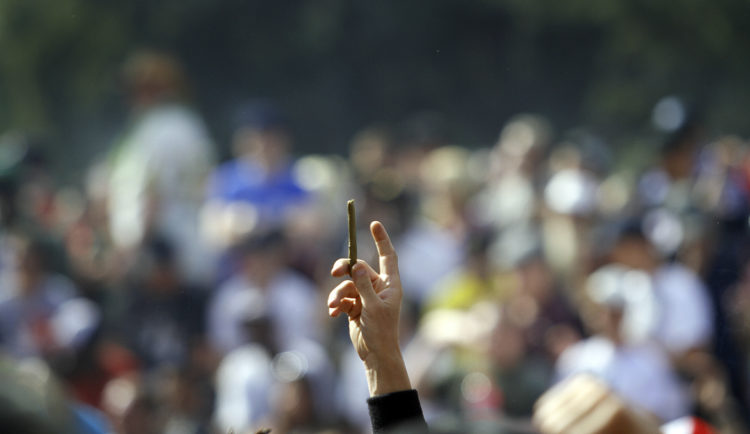With a new presidential election more than a year and a half away, the long road to the voting booths has already begun. Numerous Democratic candidates have already made official announcements regarding their intended runs and President Trump started laying the groundwork for important talking points that are sure to resurface throughout his own re-election campaign. Politics have become a fiercely divisive issue in the United States in recent years, all but assuring that the coming election will be a hotly contested one.
As seems to be a constant in American political coverage, the landscape the battle for 2020 will play out on looks quite different depending on your news outlet of choice. Liberal-leaning outlets would have you believe the sitting president is ineffective and unpopular at best, compromised by a foreign government at worst, and facing a swift defeat in the upcoming election thanks to an army of progressive voters. But the nation has heard that song and dance before out of liberal outlets in 2016, and Trump still emerged victorious.
This skewed perspective enjoys a mirrored image from the right, where Trump supporters point toward the Mueller investigation and constant media controversy as signs the liberals are threatened by Trump’s successes and popularity. From the vantage point of these outlets, re-election seems all but assured.
The truth of the matter is, trying to predict the outcome of an election before you’re even sure who the candidates will be is an exercise in futility. There are far more variables in play than simply picking a politician. Despite Trump’s controversies, the Democratic Party has managed to put itself in a precarious position heading into election season, thanks to prominent voices coming from the party’s freshman representatives.
With controversies tied to Minnesota Representative Ilhan Omar’s alleged antisemitism and the party’s tip-toed approach to addressing it, and Rep. Alexandria Ocasio-Cortez’s Green New Deal taking an aggressive and arguably unrealistic approach to climate concerns, any Democratic candidate will immediately face a political minefield.
Each candidate will have to field countless questions about their stances on Israel and Judaism which they’ll need to answer in a way that both distances themselves from antisemitism while also shoring up support for Omar and the rest of the party. Then they’ll be faced with questions about the economic viability of the Green New Deal, which will offer a similar “damned if you do, damned if you don’t” sort of quagmire. Each candidate will need to find a way to express support for the popular Democratic initiative without sounding so economically naive that they think it could be enacted into law as is.
Recent laws passed allowing late-term abortions and the Democratic Party’s swing toward socialism will both play out in Trump’s favor in 2020. Remember, when it comes to national politics, it’s not about the specific details of any of these issues, it’s about how attack ads and carefully crafted talking points can frame them in the public discourse. The looming specter of socialism (perfectly framed by the ongoing situation in Venezuela) along with the horrific imagery tied to infant deaths, will both make for extremely effective anti-Democrat narratives from Trump’s campaign and associated PACs, regardless of the Democratic candidate. These pitfalls are of the party’s making.
That isn’t to say President Trump will be able to easily win re-election thanks to these issues. As effective as Trump may be at leveraging Democrats’ woes, he faces strong opposition from large swaths of the country’s citizens, many of whom will vote for any candidate that isn’t Donald Trump. So, from our vantage point nearly two years out, it’s safe to say the nation may be in for a barn burner next November.
And this is where weed comes in. With ten states legalizing the recreational use of marijuana and 33 legally permitting the medicinal use of the drug, the trend seems to suggest America’s prohibition of pot is in its waning years. While Democrats can hope to motivate young voters to come out by painting Trump as the enemy, 2016’s election showed that vilifying the opposition may not be enough. Democrats will need to mobilize young voters, and one way to do that would be to add the nationwide legalization of marijuana to the presidential platform.
Getting teenagers and 20-somethings into the voting booths via foreign policy and economics isn’t all that easy, but if they feel as though they can play a part in effecting a legal change that may directly affect them immediately, many young Americans that already lean left (according to demographics statistics) may be more inclined to turn out to vote. It may sound petty that these voters would be swayed by weed, but the truth is, weed may be among the only things on the table in 2020 that could manifest direct, actual changes for many Americans’ lives. Loftier topics like the ongoing War on Terror may be important, but your average American isn’t directly affected by the nation’s wars.
So, how could Trump counter this power move? By beating the Democrats to it. If Trump were to tout the economic benefits of taxing marijuana sales, citing the good that could be done with the government’s revenue, he too could champion legalization in a way that likely wouldn’t alienate him from hardcore fiscal conservatives who may find legalization distasteful, but not as distasteful as a Democrat winning the election. If Trump puts legalization on the table (even without following through), it could completely de-fang that liberal effort at motivating young voters while ingratiating him to Independents and Libertarian conservatives.
Already have an account? Sign In
Two ways to continue to read this article.
Subscribe
$1.99
every 4 weeks
- Unlimited access to all articles
- Support independent journalism
- Ad-free reading experience
Subscribe Now
Recurring Monthly. Cancel Anytime.










COMMENTS